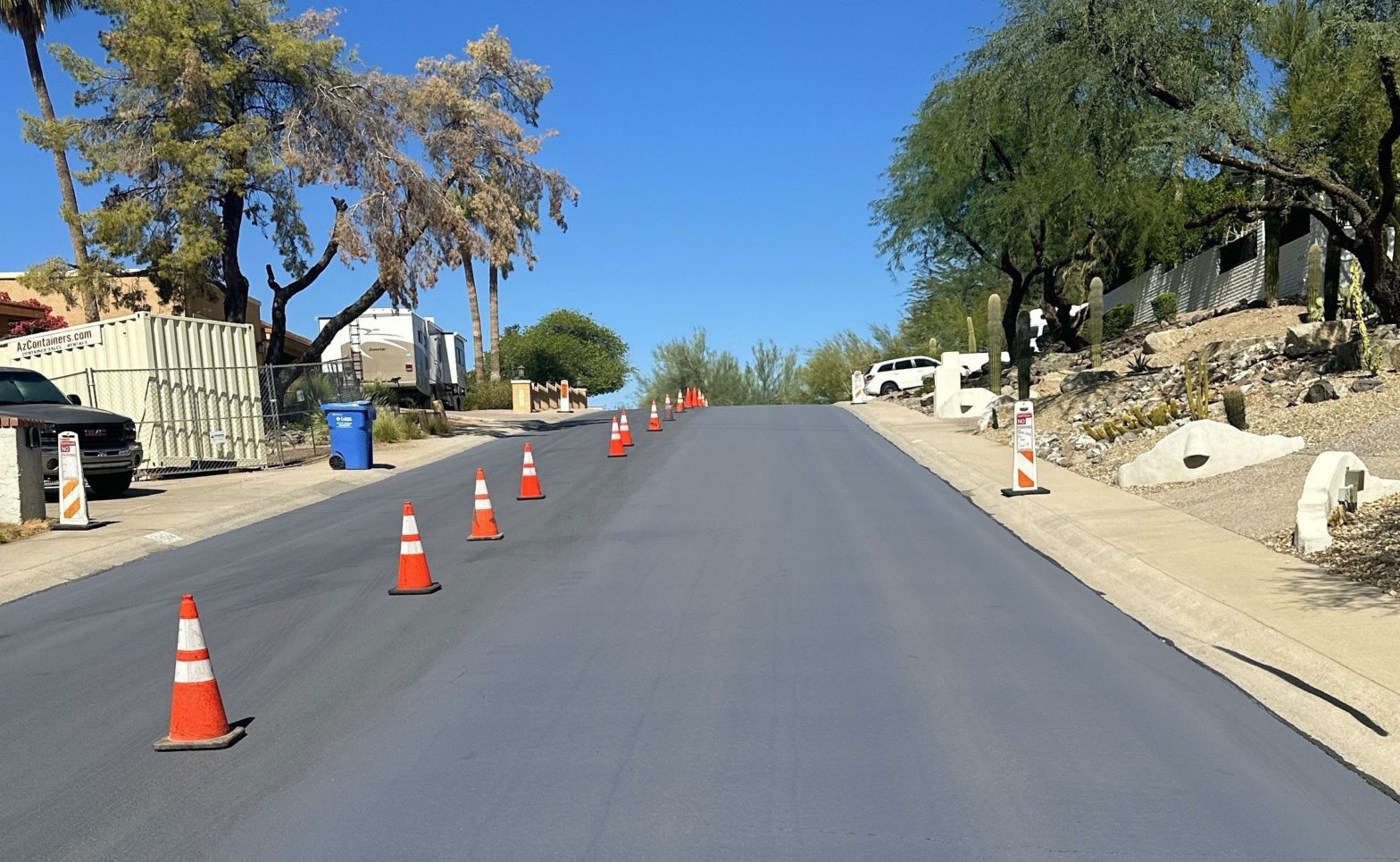
Phoenix cuts surface temps with new cool pavements
30 October 2024
by Jonathan Andrews
The City of Phoenix has effectively reduced summer surface temperatures by 12°F (approximately 6°C) compared to conventional aged pavements with new cool pavement coatings.
Arizona State University (ASU) and the city’s Street Transportation Department have worked together since 2020 on the Cool Pavement Programme and have now released an evaluation on the thermal performance of the cool pavement surfaces in residential areas.
The key findings include:
- Cool pavement effectively reduces summer surface temperatures, up to 12°F (approximately 6°C) compared to conventional aged pavement during the day.
- The new coatings may ultimately reduce long-term road maintenance needs and costs, which could yield substantive economic and environmental benefits.
- And although the impacts on air temperature were found to be small, the research says this is still beneficial.
“Phoenix is a city leader in cool pavement implementation, testing, and driving industry innovation,” said Jenni Vanos, Associate Professor at ASU and member of the research team that conducted the study. “While continued testing will be crucial in the long-term, there is no way to know how this works in the real world unless you test it in the real world, and we’ve started that important effort here in Phoenix.”
The study further revealed that the lifespan of the cool pavement seal coat is approximately eight years, as opposed to four years, for a traditional black seal coat.
Ryan Stevens, a Professional Engineer with the Phoenix Street Transportation Department said: “Since the cool pavement seal coat reduces the temperature of the asphalt underneath the surface, this will lead to a longer lifespan for the road, increasing the service life before the next major maintenance activity, like a mill and overlay.”
The challenge
Phoenix faces extreme summer temperatures, which can soar well above 43°C. These intense heat levels strain public health, increasing the risk of heat-related illnesses and fatalities, especially among vulnerable populations.
Infrastructure also suffers as heat impacts roads, bridges, and utilities, driving up maintenance costs and limiting outdoor activity. Moreover, high temperatures contribute to the urban heat island effect, where Phoenix retains more heat than surrounding areas, making nights barely cooler than the daytime.
The partnership
In 2020, Phoenix began the progamme by applying CoolSeal by GuardTop® to 58 kilometres of neighbourhood roads and a parking lot, with ASU researchers evaluating its thermal effects and resident feedback. This City-ASU partnership continued into Phase II in 2022, testing new products like “Phoenix Gray” to address residents’ color preferences and further assess cool pavement performance.
Image: City of Phoenix







